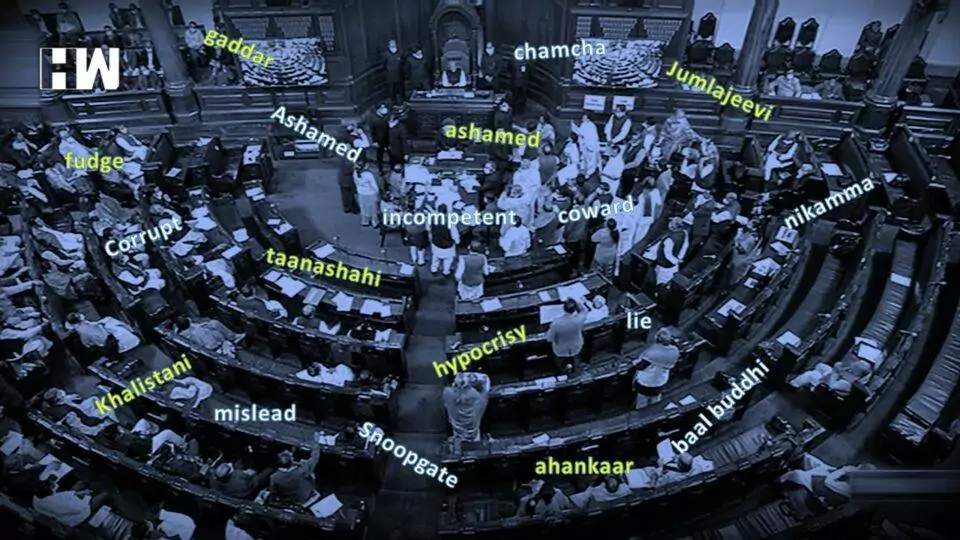Parliament holds an important position in fostering constitutional and republican democracy. It is hence
crucial to uphold its sanctity.
The current circumstances of growing unpleasant legal, informal and formal unrest against dissenting
voices through varied mediums have enraged one to ponder how to be or sound critical without coming
across as cynical in this difficult phase of struggling with upholding constitutional principles and values.
In the words of senior advocate and former president of supreme court bar association Dushyant Dave ‘In
these testing times one should always practice moderated criticism in order to ensure that one is not
overriding any constitutional values or infringing upon others’ personal liberty. Although going by the
current deranged set of standards of being critical it is highly conspicuous to know what falls within the
structure of moderated criticism as the definition of the same is even getting sloppy with each passing
day.
The Lok Sabha Secretariat recently released a 50-page compilation of words deemed unfit for use in
parliament. This comes just ahead of the monsoon session of the parliament. Parliament or legislature is
considered to be one of the strongholds of putting forward citizens’ voices and concerns through the
representatives. Parliament is expected to foster deliberation, discussion, and debates that bring
constructive outcomes in the tabled legislation and policy implemented by the government. The role of the
opposition is also crucial in this process to bring proactive and constructive criticism of the government
policies and passed bills. Listing out certain specific terms that are effectively in use by the opposition as
deemed unfit for use in parliament can be seen as posing zero tolerance for any form of criticism. Words
as common as dictatorial (tanashahi or tanashah), corrupt, ashamed, abused, betrayed, hypocrisy,
snoop gate, and incompetent will henceforth be considered unparliamentary in both Lok Sabha and Rajya
Sabha. One can understand the censoring of terms like jumlajevi, Baal budhi, Jaichand, and Shakuni as
these words pose a direct attack on an individual’s personal character and tend to give a poor reflection of
the choice of words.
The exercise of compiling the list of unparliamentary words has been going on periodically as
provisioned by the constituent assembly for declaring words that are not deemed fit to be used in parliament
and expressions that degrade the dignity of the house can be expunged. The last update in this list was done
in the year 2010. The list is brought out by parliamentary secretariats. It serves as a ready reference and
also as a guide for parliamentarians, researchers, and political analysts. Ideally, such sensitive matters
related to parliamentary proceedings are discussed and consulted with all parties represented in the
rules committee but as usual, it seems to be a new era in Indian politics where there is less discussion or
deliberation and more action with sudden spontaneity.
A parliamentary debate or deliberation requires certain set principles of decorum that bring in the best
use of language, and tonality of articulation. Parliamentary debates have a rich legacy of being informative,
analytical, and critical in a measured way of expression. Many parliamentarians over the decades have
been celebrated for their exceptional oratory abilities coupled with sly humor or at times satirical take
on ruling dispensation. A vibrant legislative house that facilitates healthy debates between leaders from
the ruling and opposition political parties on the bills that are tabled in the house is a sign of progression
from conventional approaches. Unfortunately, there have been very few such instances of witnessing a
constructive debate over bills or policy matters in recent years.
Words hold tremendous power in effective communication and articulation of the thought process behind
the expression of a speech. Words when used with certain expressions in a speech that is carried with
certain tonality make a significant impact. Parliamentary speeches in general hold a certain nature of
intent with which it is delivered regardless of the position one is delivering the speech. It is in this situation
that the words used in a common expression of critical observation of policies and bills introduced by
the ruling dispensation are deemed unparliamentary and will culminate in the erosion of the stature of parliamentary
debates. While it is important to regulate the decorum in parliament and time-to-time scrutiny of the conduct
of parliamentarians, it is expected to also ensure not to culminate in an environment of restraint and regression.
Parliament holds an important position in fostering constitutional and republican democracy. It is hence
crucial to uphold its sanctity.
The Author is an Assistant Professor of Political Science at Shoolini University, Solan, Himachal Pradesh.
As an independent media platform, we do not take advertisements from governments and corporate houses. It is you, our readers, who have supported us on our journey to do honest and unbiased journalism. Please contribute, so that we can continue to do the same in future.

